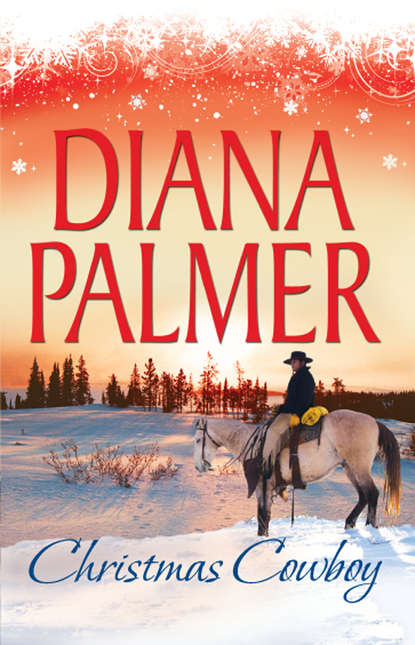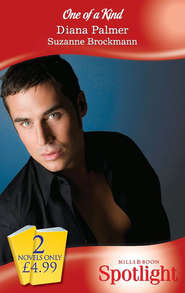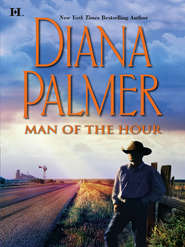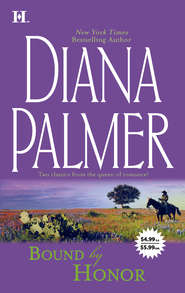По всем вопросам обращайтесь на: info@litportal.ru
(©) 2003-2024.
✖
Christmas Cowboy: Will of Steel / Winter Roses
Автор
Год написания книги
2018
Настройки чтения
Размер шрифта
Высота строк
Поля
Her eyebrows arched. “Thank you.”
“You get that from your mother,” he said gently. “I remember her very well. I was only a boy when she died, but she was well-known locally. She was the best cook in two counties. She was always the first to sit with anyone sick, or to take food when there was a funeral.”
“I only know about her through my uncle,” she replied. “My uncle loved her. She was his only sister, much older than he was. She and my father had me unexpectedly, late in life.”
Which, he thought, had been something of a tragedy.
“And then they both died of the flu, when I was barely crawling,” she sighed. “I never knew either of them.” She looked up. “You did at least know your parents, didn’t you?”
He nodded. “My mother died of a stroke in her early thirties,” he said. “My father was overseas, working for an oil corporation as a roughneck, when there was a bombing at the installation and he died. My grandmother took me in, and my uncle moved in to help support us.”
“Neither of us had much of a childhood,” she said. “Not that our relatives didn’t do all they could for us,” she added quickly. “They loved us. Lots of orphaned kids have it a lot worse.”
“Yes, they do,” he agreed solemnly. “That’s why we have organizations that provide for orphaned kids.”
“If I ever get rich,” she commented, “I’m going to donate to those.”
He grinned. “I already do. To a couple, at least.”
She leaned back against a tree and closed her eyes, drinking in the sights and sounds and smells of the woods. “I love winter. I know it isn’t a popular season,” she added. “It’s cold and there’s a lot of snow. But I enjoy it. I can smell the smoke from fireplaces and woodstoves. If I close my eyes, it reminds me of campfires. Uncle John used to take me camping with him when I was little, to hunt deer.”
“Which you never shot.”
She opened her eyes and made a face. “I’m not shooting Bambi.”
“Bull.”
“People shouldn’t shoot animals.”
“That attitude back in colonial times would have seen you starve to death,” he pointed out. “It’s not like those old-timers could go to a grocery store and buy meat and vegetables. They had to hunt and garden or die.”
She frowned. “I didn’t think about that.”
“In fact,” he added, “people who refused to work were turned out of the forts into the wilderness. Some stole food from the Indians and were killed for it. Others starved or froze to death. It was a hard life.”
“Why did they do it?” she wondered aloud. “Why leave their families and their homes and get on rickety old ships and go to a country they’d never even seen?”
“A lot of them did it to escape debtor’s prison,” he said. “They had debts they couldn’t pay. A few years over here working as an indentured servant and they could be free and have money to buy their own land. Or the people they worked for might give them an acre or two, if they were generous.”
“What about when the weather took their crops and they had nothing to eat? ”
“There are strings of graves over the eastern seaboard of pilgrims who starved,” he replied. “A sad end to a hopeful beginning. This is a hostile land when it’s stripped of supermarkets and shopping centers.”
A silence fell between them, during which he stared at the small rapids in the stream nearby. “That freezes over in winter,” he said. “It looks pretty.”
“I’d like to see it then.”
He turned. “I’ll bring you over here.”
She smiled. “Okay.”
His black eyes looked long and deep into hers across the distance, until she felt as if something snapped inside her. She caught her breath and forced her eyes away.
Ted didn’t say anything. He just smiled. And started walking again.
She loved it that he didn’t pressure her into a more physical relationship. It gave her a breathing space that she desperately needed.
He took her to a play in Billings the following weekend, a modern parody of an old play about two murderous old women and their assorted crazy relatives.
She laughed until her sides ached. Later, as they were driving home, she realized that it had been a long time since she’d been so amused by anything.
“I’m so glad I never had relatives like that,” she ventured.
He laughed. “Me, too. The murderous cousin with the spooky face was a real pain, wasn’t he?”
“His associate was even crazier.”
She sat back against the seat, her eyes closed, still smiling. “It was a great play. Thanks for asking me.”
“I was at a loose end,” he commented. “We have busy weekends and slow weekends. This was a very slow one, nothing my officers couldn’t handle on their own.”
That was a reminder, and not a very pleasant one, of what he did for a living. She frowned in the darkness of the cab, broken only by the blue light of the instrument panel. “Ted, haven’t you ever thought about doing something else for a living?”
“Like what?” he asked. “Teaching chemistry to high school students?”
He made a joke of it, but she didn’t laugh. “You’re not likely to be killed doing that.”
“I guess you don’t keep up with current events,” he remarked solemnly, and proceeded to remind her of several terrible school shootings.
She grimaced. “Yes, but those are rare incidents. You make enemies in your work. What if somebody you locked up gets out and tries to kill you?”
“It goes with the job,” he said laconically. “So far, I’ve been lucky.”
Lucky. But it might not last forever. Could she see herself sitting by the phone every night of her life, waiting for that horrible call?
“You’re dwelling on anticipation of the worst,” he said, glancing her way. “How in the world do you think people get by who have loved ones with chronic illness or life-threatening conditions?”
She looked at him in the darkness. “I’ve never thought about it.”
“My grandmother had cancer,” he reminded her. “Had it for years. If I’d spent that time sitting in a chair, brooding on it, what sort of life would it have been for her?”
She frowned. “Lonely.”
“Exactly. I knew it could happen, anytime. But I lived from day to day, just like she did. After a while, I got used to the idea, like she did, and we went on with our lives. It was always there, in the background, but it was something we just—” he searched for the word “—lived with. That’s how husbands and wives of people in law enforcement and the military deal with it.”
It was a new concept for her, living with a terrifying reality and getting used to it.
“You’re very young,” he said heavily. “It would be harder for you.”











